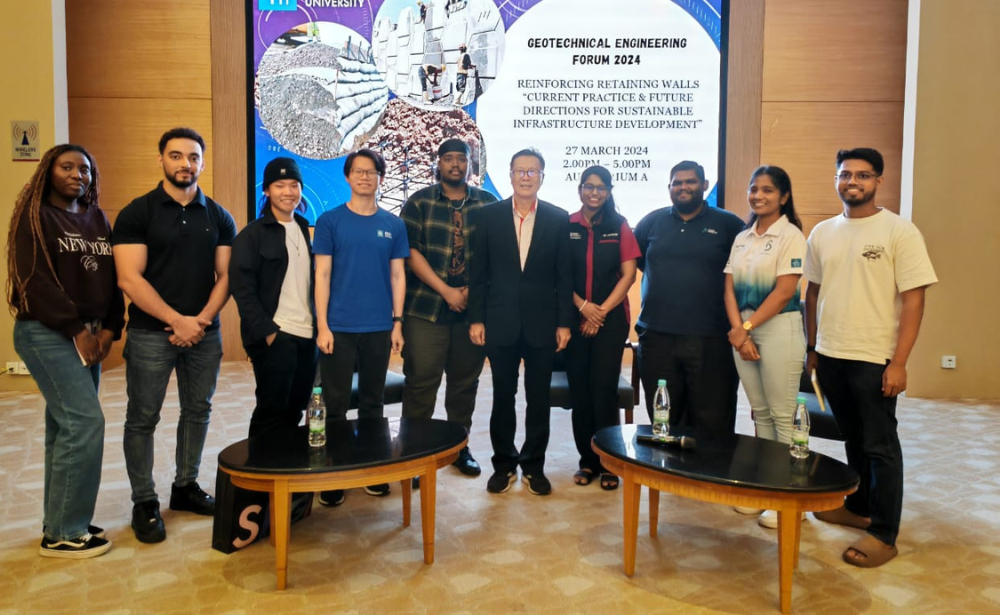SEGi University recently hosted a highly informative forum on “Reinforcing Retaining Walls: Current Practice and Future Directions for Sustainable Infrastructure Development”. This event, organised by the Faculty of Engineering, Built Environment, and Information Technology (FOEBEIT), gathered engineering students and academics to discuss the latest trends and sustainable practices in geotechnical engineering.
The forum featured two distinguished speakers: Ir. Dr. Nehemiah Lee, founder of Nehemiah Reinforced Soil Sdn Bhd, and Lingswaran Numbikkannu, assistant manager at Alpha Pinnacles Sdn Bhd. Ir. Dr. Nehemiah Lee shared his extensive experience in soil reinforcement techniques and the innovative Nehemiah Wall system, which has been a cornerstone in sustainable construction since 1993. Mr. Lingswaran Numbikkannu discussed advancements in geosynthetics and rockfall protection solutions, emphasizing the importance of integrating sustainable practices in civil engineering.
This event aligns with the United Nations Sustainable Development Goals (SDGs), particularly Quality Education (SDG 4), Industry, Innovation, and Infrastructure (SDG 9), and Sustainable Cities and Communities (SDG 11). By providing a platform for industry experts to share their knowledge, SEGi demonstrates its commitment to fostering a culture of sustainability and innovation among its students. The forum encouraged active participation and engagement, allowing students to explore practical applications and challenges in sustainable development.
SEGi’s dedication to high-quality education was evident as the event successfully promoted awareness of current sustainable development practices. Students gained valuable insights into real-world engineering challenges and the latest industry trends, preparing them to take proactive steps towards integrating sustainable practices into their future projects and careers.
The event also highlighted SEGi’s role in promoting environmental responsibility and sustainable infrastructure development. The interactive sessions and case studies showcased the university’s commitment to providing its students with comprehensive and practical knowledge, reinforcing its reputation as a leading institution in engineering education.
Feedback from participants was overwhelmingly positive, with students appreciating the opportunity to learn from industry leaders and gain a deeper understanding of sustainable engineering practices. This successful forum is a testament to SEGi’s ongoing efforts to support sustainable development and equip its students with the skills needed to make a positive impact on the world.
This event is organised in support of the following United Nations Sustainable Development Goals (SDG):
Quality Education (SDG 4)
Industry, Innovation, and Infrastructure (SDG 9)
Sustainable Cities and Communities (SDG 11)

